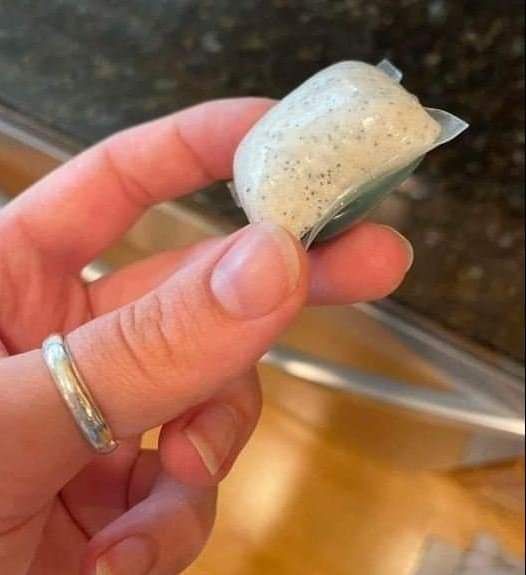Introduction
If you rely on dishwasher pods, especially those with powdered detergent like Cascade, you might be unknowingly putting your plumbing at risk. Recently, after experiencing a significantly backed-up kitchen sink, I discovered that the very product I used to keep my dishes sparkling clean was the culprit behind a costly plumbing issue. My situation serves as a cautionary tale for anyone still using powdered dishwasher pods. In this article, I will discuss how these seemingly innocuous cleaning agents can lead to plumbing disasters and offer solutions to prevent such occurrences in the future.
1. How Dishwasher Pods Work
Dishwasher pods contain pre-measured quantities of detergent that simplify the dishwashing process. Most pods consist of a powder or gel encased in a soluble film. When the dishwasher operates, water activates the pod, releasing cleaning agents that break down food particles and grease. While convenient, this activation can create problems in your plumbing if not managed carefully.
2. The Plumbing Dilemma: What Happened?
This past weekend was a stark reminder of how little attention we often pay to the products we use daily. After loading my dishwasher and running a cycle, I noticed my sink was draining slowly. Initially, I tried common DIY methods, like using a plunger and pouring baking soda and vinegar down the drain. Unfortunately, those attempts yielded no results.
Frustrated, I called a plumber. After an hour of diagnostics and toil, the plumber revealed that over time, the powdered detergent from my dishwasher pods had solidified, creating a dense, concrete-like barrier within the pipes. The situation required a specialized machine to dislodge the buildup, which added a few hundred dollars to my weekend expenses. Had I known earlier, I might have avoided this plumbing catastrophe altogether.
3. The Science Behind Powdered Detergent Build-Up
So, what causes powdered dishwasher detergent to gunk up plumbing? When powdered detergents are exposed to water, they dissolve and disperse in the wash water. However, if there are any clogs, residual substances, or improper flushing in the pipes, the powder can become trapped. Over time, this trapped detergent can absorb water and create a sticky sludge that hardens, especially in cooler areas of the plumbing system.
The gelatinous substance can create a thick barrier that restricts water flow, eventually leading to severe clogs. The more you use these powdered pods, the worse the buildup becomes, creating a vicious cycle of increasing plumbing issues.
4. Common Symptoms of Dishwasher Pod Buildup
- Slow Draining Sink: This is usually the first sign of a problem. If your sink doesn’t drain as quickly as it used to, it’s worth investigating further.
- Foul Odors: Accumulated debris and stagnant water can create a foul smell. If you notice unusual odors from your sink or dishwasher, the cause might be gunked-up pipes.
- Unusual Noises: If you hear gurgling or bubbling sounds when using your sink or dishwasher, these sounds can indicate air trapped behind a blockage, signaling plumbing problems.
- Frequent Clogs: If you find yourself calling for plumbing help more often than usual, you may have a buildup of detergent that creates recurring clogs.
5. The Plumber’s Expertise: Advice from a Pro
After dealing with the aftermath of my dishwasher pod mishap, I sought the plumber’s expertise regarding best practices for maintaining my plumbing. He had an alarming number of clients facing similar issues, primarily due to powdered dishwasher pods. Here’s what he recommended:
- Switch to Liquid Detergent: Liquid dishwasher detergents or liquid pods are less likely to create buildup as they dissolve more easily in water. This might be the simplest switch to make to protect your plumbing.
- Regular Maintenance: Schedule periodic plumbing maintenance to check for clogs and buildup. A professional can inspect your pipes and recommend cleaning solutions to keep everything flowing smoothly.
- Use Vinegar for Maintenance: Occasionally running vinegar through your sink can help break down grease and minor buildups.
- Avoid Overloading the Dishwasher: Overloading can lead to ineffective cleaning and leftover food particles jammed in the filter, which can contribute to drainage problems.
6. Alternatives to Powdered Pods
There are several alternatives to consider when it comes to dishwasher detergent:
- Liquid Dishwasher Detergent: Go for reputable brands with a proven track record of performance and compatibility with a variety of plumbing systems.
- Eco-Friendly Options: Many brands offer eco-friendly liquid detergents that are gentle on plumbing and the environment. These options often come in recyclable packaging, reducing environmental impact.
- Homemade Solutions: If you’re keen on avoiding commercial products entirely, consider making your own dishwasher detergent. Combine baking soda, washing soda, and a few drops of vinegar for a simple mixture that cleans effectively without gumming up your pipes.
7. Conclusion: The Importance of Awareness
Switching off from powdered dishwasher pods is a proactive step to ensure your plumbing remains healthy. While these products may promise convenience and cleaning power, they also carry hidden dangers. The experience of my clogged sink and costly plumbing repair serves as a stark reminder that what we use daily in our kitchens can yield unexpected negative consequences.
Transitioning to liquid dishwasher detergent or using eco-friendly alternatives can easily mitigate the risk of clogs caused by solidified detergent. Increasing awareness about the potential problems associated with powdered products is crucial for homeowners everywhere.
So, take this PSA seriously: if you use powdered dishwasher pods like Cascade, consider the long-term implications and switch to a safer option for your plumbing. Your kitchen sink—and your wallet—will thank you. Remember, oftentimes, prevention is the best cure!
Ultimately, my hope is that sharing my story will help others avoid the misfortune of neglecting their plumbing due to an innocent-sounding cleaning product. Kitchen catastrophes can strike when we least expect them; being informed is the best way to ensure they don’t happen to you.




